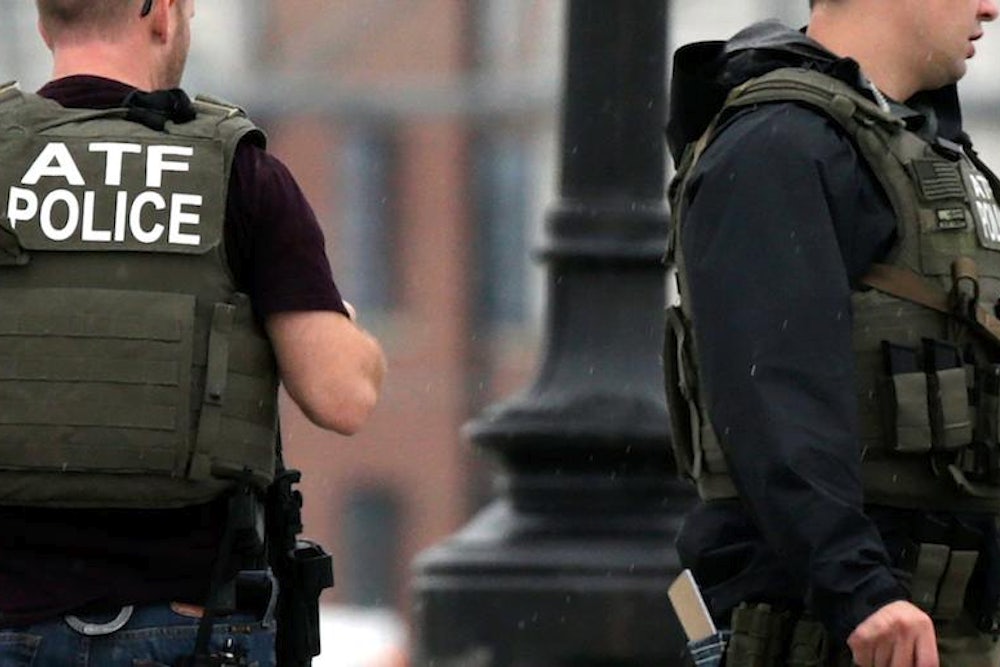There’s still plenty that the American public doesn't know about the “Fast and Furious” scandal—or so says Agent John Dodson, one of the whistleblowers who exposed the botched operation from within the Bureau of Alcohol, Tobacco, Firearms, and Explosives (ATF) in 2011. Dodson has written a book called The Unarmed Truth, but when he showed the manuscript to his ATF supervisors—he still works there—and asked for permission to publish it (the protocol was to seek permission for “outside employment”), they said no. Monday, the American Civil Liberties Union announced it is representing Dodson and penned a letter accusing the ATF of trampling on his First Amendment rights.
Unfortunately for Dodson, and for anyone eager to read his first-hand account, one legal precedent poses a hurdle to government canaries looking to publish tell-alls: the 2006 Supreme Court decision in Garcetti v. Ceballos.
“In that case, the Supreme Court came pretty darn close to holding that government employees have no First Amendment rights when it comes to speech they can make only by virtue of being a government employee,” said Stephen Vladeck, a national security law expert at American University. That would put the kibosh on Dodson’s book—or, at the very least, give the ATF grounds to fire him if he publishes it, which he has said he will do this winter one way or another.
In the Garcetti case, a calendar deputy in the Los Angeles District Attorney’s office sued his employers for denying him a promotion after he wrote a memo recommending the dismissal of a case they wanted to prosecute. The court ultimately ruled that the employers were within their rights: “When public employees make statements pursuant to their official duties, the employees are not speaking as citizens for First Amendment purposes, and the Constitution does not insulate their communications from employer discipline.”
Government employee speech “is a very gray area of the law, and one that’s only gotten darker in recent years,” says Vladeck. “Garcetti really changes the landscape.” He added that a body of whistleblower law protects people who leak information up the internal chain of command, or even to Congress, but doesn’t cover big public reveals like writing a book.
Dodson did not respond to a request for comment on the book itself, but The Washington Post has reported that Senator Chuck Grassley and Representative Darrell Issa, two Republicans who railed against the Obama administration when details on Operation Fast and Furious first emerged, wrote its foreword. “Just because the ATF leadership doesn’t like the content of the book doesn’t mean they should be able to prevent the author from giving his side of the story,” Grassley said this week.
The ACLU’s letter cites an older Supreme Court case, Pickering v. Board of Education (1968), which established that government employees’ rights as citizens must be “balanced against the State's interest in promoting the efficiency of its employees' public services.” Many believe Garcetti “turned [Pickering] on its head,” in the words of Sheldon Nahmod of Chicago-Kent College of Law, but the ACLU disagrees. “Garcetti is a wrench in the works, and we grapple with it all the time,” ACLU attorney Lee Rowland admitted, but she said she doesn’t think that decision applies in Dodson’s case. For one thing, she said, the ATF didn’t summon the Garcetti argument—that it can control Dodson’s speech as it relates to his official duties—when it forbade him from publishing the book. It simply declared that it could “disapprove any outside employment request for any reason” (underline theirs) and added, “This would have a negative impact on morale in the Phoenix FD and would have a detremental effect [sic] on our relationships with DEA and FBI.”
Rowland said “morale” does not outweigh Dodson’s right to free speech. “Fast and Furious has been sliced and diced from every angle,” she said. “Pretty much the only voice we haven’t heard is Agent Dodson’s account.” Rowland added today that the ACLU has already begun a “fruitful conversation” with the ATF.
Of course, Dodson isn’t the first whistleblower to try his hand at writing a memoir. The ACLU’s letter mentions the case of an FBI agent named Robert Wright Jr., who wrote an exposé of an investigation into Hamas in the 1990s. After a nearly decade-long legal battle, a U.S. District Court judge ruled that Wright could publish his book in 2009. By then, as Politico noted, “it was a pyrrhic victory for the agent…since the passage of time appears to have diminished the market for his book.”
